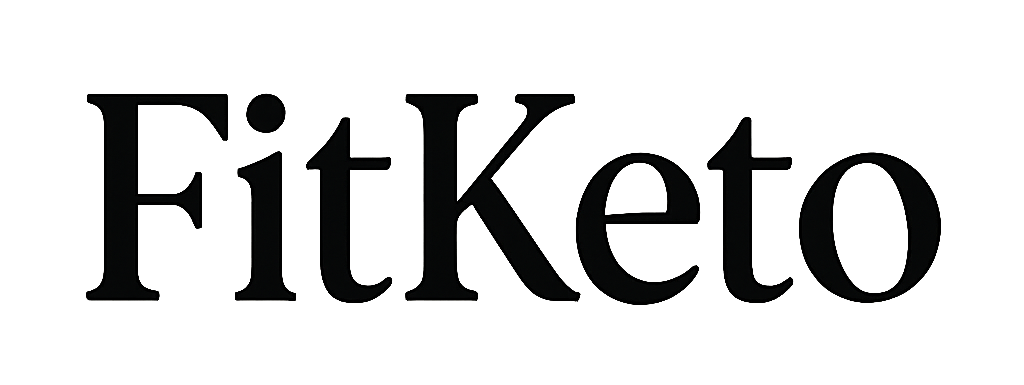Depression often feels like an unyielding shadow, coloring every aspect of life with shades of despair and exhaustion. For many, traditional treatments offer some relief, but not always the full healing they seek. My journey took an unexpected turn when I discovered the GAPS diet—a nutritional protocol primarily designed for gut health, yet one that profoundly impacted my mental well-being. In this article, I share how nourishing my body through the GAPS diet became a crucial step toward lifting the fog of depression, exploring the connection between what we eat and how we feel.
Table of Contents
- Introduction to the GAPS Diet and Its Connection to Mental Health
- Understanding the Gut-Brain Axis and Its Role in Depression
- Personal Journey: From Struggling with Depression to Embracing GAPS
- Key Components of the GAPS Diet That Support Emotional Well-being
- Practical Tips for Incorporating GAPS Principles Into Daily Life
- Q&A
- Key Takeaways

Introduction to the GAPS Diet and Its Connection to Mental Health
The GAPS Diet, developed by Dr. Natasha Campbell-McBride, centers around healing the gut to foster overall well-being, including mental health. It is built on the premise that many psychological conditions stem from an imbalance in gut flora or a compromised digestive system. By nurturing gut health with nutrient-rich, unprocessed foods, the diet aims to restore natural brain function and emotional balance. This unique approach challenges conventional treatments by focusing on the root cause rather than just the symptoms.
Key elements of the diet include:
- Eliminating processed and inflammatory foods like sugars, grains, and starches
- Introducing homemade broths, fermented foods, and probiotics to repopulate good bacteria
- Gradual reintroduction of foods to identify personal triggers and sensitivities
| Benefits Observed | Potential Impact on Mental Health |
|---|---|
| Reduced inflammation | Improved mood and cognitive function |
| Strengthened gut lining | Decreased anxiety and depressive symptoms |
| Balanced microbiome | Enhanced neurotransmitter production |
Understanding the Gut-Brain Axis and Its Role in Depression
The intricate communication network between our gut and brain, often called the gut-brain axis, plays a pivotal role in mental health. This bi-directional connection involves the nervous system, hormone signals, and the immune system, all influenced by the trillions of microbes residing in our intestines. When this balance is disrupted, it can lead to inflammation and chemical imbalances that exacerbate or even trigger symptoms of depression. Many researchers now believe that nurturing gut health may be just as important as traditional psychiatric treatments in managing mood disorders.
Adopting the GAPS Diet focuses on restoring gut integrity and promoting beneficial bacteria, which in turn can stabilize mood and reduce anxiety. Key components of this approach include:
- Eliminating processed and inflammatory foods
- Consuming nutrient-rich bone broths and fermented foods
- Supporting digestion with healthy fats and probiotics
The positive effects on mental clarity and emotional balance often reported by followers highlight the powerful link between what we eat and how we feel. Here’s a quick comparison of gut and brain health markers before and after following the GAPS Diet:
| Health Indicator | Before GAPS Diet | After GAPS Diet |
|---|---|---|
| Digestive Comfort | Frequent Bloating | Minimal Discomfort |
| Mood Stability | High Anxiety | Calm & Centered |
| Energy Levels | Fatigue | Consistent & Vibrant |
Personal Journey: From Struggling with Depression to Embracing GAPS
Living under the weight of persistent depression, every day felt like an uphill battle that drained my energy and clouded my mind. Conventional treatments offered fleeting relief but never addressed the root cause of my turmoil. It was only when I discovered the principles of the GAPS diet that a transformation began. The focus on gut health, nourishing homemade foods, and eliminating inflammatory ingredients opened a new pathway toward mental clarity. I started noticing subtle shifts—improved mood swings, better sleep patterns, and a blossoming sense of calm that had eluded me for years.
Key shifts I experienced during my transition to the GAPS lifestyle included:
- Renewed energy levels and motivation
- Reduction in anxiety and intrusive negative thoughts
- Improved digestion supporting overall well-being
- Connection between food, mind, and emotional balance
| Before GAPS | After Embracing GAPS |
|---|---|
| Chronic fatigue | Restorative energy |
| Mood instability | Emotional equilibrium |
| Brain fog | Clear thinking |
| Frequent digestive discomfort | Comfortable digestion |
Key Components of the GAPS Diet That Support Emotional Well-being
Central to the healing journey on the GAPS Diet are nutrient-dense, whole foods that nurture the gut-brain axis—a critical pathway linking digestive health with emotional balance. By focusing on homemade bone broths, fermented vegetables, and organic meats, the diet replenishes vital minerals and probiotics that help restore gut integrity. These elements collectively support neurotransmitter production, which is essential for stabilizing mood and reducing anxiety. The transformation begins as these foods work synergistically to calm inflammation and promote a balanced microbiome.
Beyond the cornerstone ingredients, specific lifestyle practices embedded within the GAPS framework amplify its emotional benefits. Practices such as avoiding processed sugars and grains that trigger gut dysbiosis, along with consuming healthy fats like avocado and coconut oil, create a stable biochemical environment for the brain. Here’s a brief overview:
- Bone Broth: Rich in collagen and amino acids for gut lining repair
- Fermented Foods: Deliver live probiotics crucial for microbiome diversity
- Healthy Fats: Provide brain fuel and help reduce inflammation
- Elimination of Sugars & Grains: Prevents harmful gut bacteria overgrowth
Practical Tips for Incorporating GAPS Principles Into Daily Life
One of the easiest ways to begin integrating GAPS principles into your life is by focusing on fresh, homemade broths and fermented foods. These nourish the gut and promote healing without overwhelming your digestive system. Try keeping a batch of bone broth simmering on the stove or in a slow cooker to sip throughout the day. Adding a spoonful of homemade sauerkraut or kefir to meals can also balance your gut microbiome naturally. Remember, consistency is key—small daily rituals can become powerful healing habits.
Meal planning doesn’t have to be complicated. Use the table below as a quick weekly guide to vary your intake of the core GAPS foods and keep your gut happy:
| Day | Broth/Fermented Food | Main Protein | Vegetables/Fats |
|---|---|---|---|
| Monday | Chicken bone broth + sauerkraut | Grilled chicken | Steamed zucchini + olive oil |
| Wednesday | Beef bone broth + kefir | Beef stew | Roasted carrots + avocado |
| Friday | Fish broth + homemade yogurt | Baked salmon | Spinach sautéed in coconut oil |
Lastly, listen to your body’s signals and take time to rest. GAPS isn’t just about the food—it’s about creating a lifestyle where nourishment comes in many forms, including mindful eating, adequate sleep, and stress reduction. Make your healing journey a holistic one, and watch how these practical shifts transform your mental and physical well-being.
Q&A
Q&A: How the GAPS Diet Healed My Depression
Q: What is the GAPS diet, and why did you choose to try it for your depression?
A: GAPS stands for Gut and Psychology Syndrome. It’s a nutritional protocol designed to heal the gut lining and restore healthy gut flora. I was intrigued by its premise because my depression felt deeply tied to my gut health—bloating, discomfort, and brain fog often came hand in hand with mood dips. Conventional treatments helped, but I wanted to address root causes rather than just symptoms.
Q: Can you describe what the GAPS diet involves?
A: The diet focuses on nutrient-dense, homemade foods like bone broths, fermented vegetables, and healthy fats, while eliminating processed foods, sugars, and grains. It starts very restrictively then gradually reintroduces foods as healing progresses. For me, it was almost like giving my digestive system a clean slate and gentle nourishment.
Q: How soon did you notice changes in your depression symptoms?
A: It wasn’t overnight, but within a few weeks, subtle shifts emerged—less brain fog, more clarity, steady energy. Around the two-month mark, I noticed my mood lifting and anxiety easing. The changes accumulated, like little ripples turning into waves of mental calm I hadn’t felt in years.
Q: Were there any challenges or surprises during the process?
A: Absolutely. Early on, the transition was tough—detox symptoms like headaches and fatigue popped up as my body adjusted. Social eating became tricky because the diet is quite restrictive. However, these bumps were balanced by the surprise discovery of delicious homemade recipes and a newfound appreciation for simple, whole foods.
Q: How did healing your gut translate to improved mental health?
A: The gut-brain connection is powerful. Healing my gut reduced inflammation and balanced my microbiome, which in turn seemed to stabilize my mood. I felt less reactive and more resilient. It was as if repairing a faulty communication line between my gut and brain made my emotional landscape quieter and clearer.
Q: Would you recommend the GAPS diet to others struggling with depression?
A: It depends. This diet isn’t magic for everyone, and the intensity requires commitment and sometimes guidance from health professionals. But if depression feels intertwined with digestive issues or brain fog, exploring gut health through nutrition might be a worthwhile journey. For me, it was a path to rediscovering hope and healing from the inside out.
Q: What advice would you give to someone starting the GAPS diet?
A: Be patient and gentle with yourself. Celebrate small wins and listen closely to your body. Find supportive communities or professionals who understand the diet’s nuances. And remember, the goal is progress, not perfection—the possibility of reclaiming your mental wellness makes the effort deeply meaningful.
Key Takeaways
Embarking on the GAPS diet was more than just a change in what I ate—it was a journey into understanding how deeply connected our gut and mind truly are. While this path wasn’t a magic cure, it opened doors to healing that conventional treatments hadn’t fully unlocked for me. Through patience, persistence, and a willingness to listen to my body, the fog of depression began to lift, revealing a clearer, brighter horizon. The GAPS diet may not be the answer for everyone, but for those willing to explore the intricate dance between nutrition and mental health, it offers a hopeful chapter in their story of recovery.

